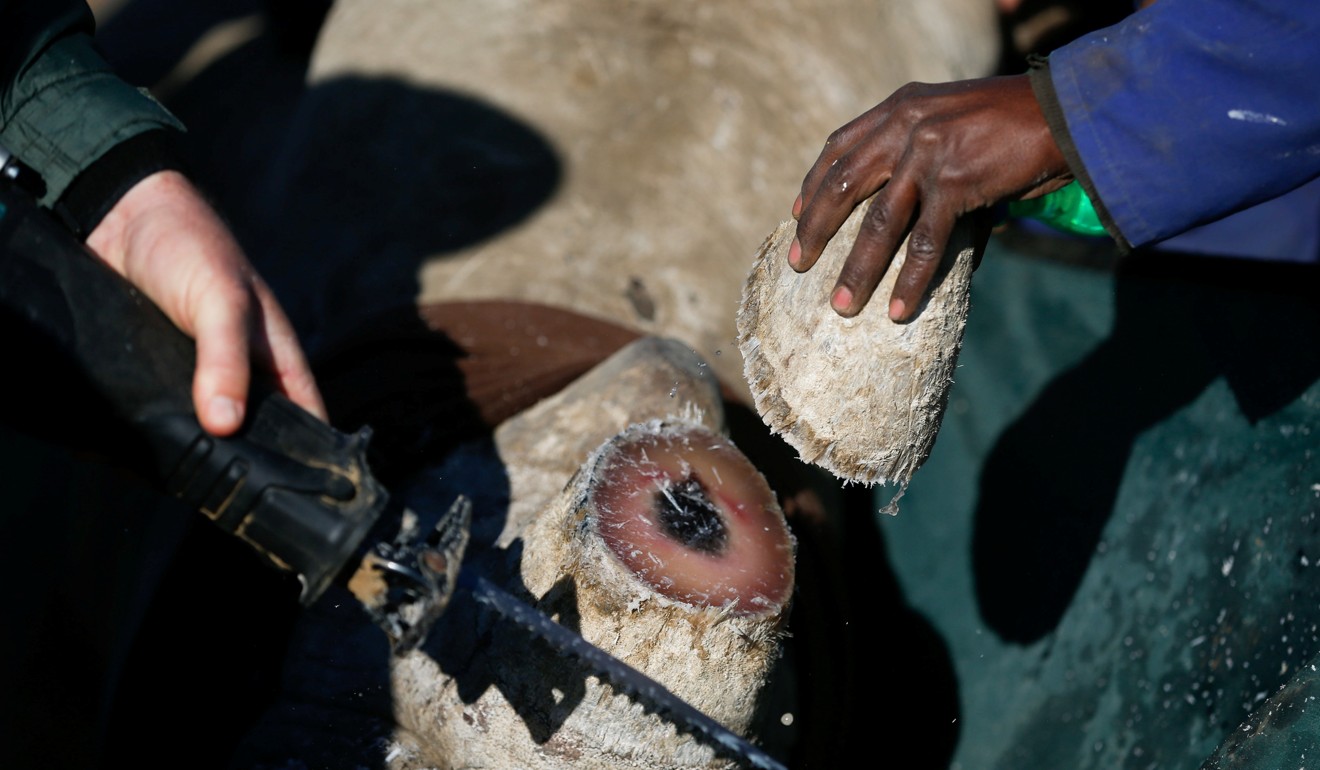
Few buyers for South Africa's first online auction of ‘harvested’ rhino horns
Rhino breeder harvests horns by tranquillising the animals and cutting them off – a technique he says is humane and wards off poachers
South Africa’s first online auction of rhino horn – held amid outrage from conservationists – attracted fewer buyers than anticipated, lawyers for the organiser said.
John Hume, owner of the world’s largest rhino farm, organised the controversial three-day sell-off which ended on Friday.
Hume “has successfully concluded the world’s first legal online auction of rhinoceros horn,” his lawyers said in a statement, but gave no details.
“The auction yielded fewer bidders and fewer sales than anticipated,” they added “but the legal domestic trade has now been re-established and the road has been paved for future sales”.
But “bidders were duly authorised to participate in the auction and were issued with legally required permits to participate,” the lawyers said.

The auctioneers did not set any opening prices for bids, but all potential bidders had to pay a 100,000 rand (US$7,626) registration fee to gain access to the online auction.
The auction was delayed for two days after a legal challenge and protests from conservation groups arguing that the sale would fuel poaching and undermine a 40-year global ban on the rhino trade.
Hume, who owns 1,500 rhinos on his farm north of Johannesburg and has amassed six tonnes of rhino horn, eventually secured a permit for the auction.
However the auction organisers blamed the delays for the subdued sales.
Hume harvests the horns by tranquillising the animals and cutting them off – a technique he says is humane and wards off poachers.
Hume organised the sale to dispose of 264 pieces of horns weighing a total of 500 kilograms. He is planning an offline auction next month.
The government has not publicly commented on the auction, which came after South Africa’s top court lifted an eight-year moratorium on the domestic trade of rhino horns in April.
South Africa is home to around 20,000 rhinos, about 80 per cent of the worldwide population, but the country has suffered record slaughter by poachers in recent years.
Poachers have killed more than 7,100 rhinos in Africa over the past decade.
Rhino horns are highly prized in Asia, where they were previously estimated to fetch up to US$60,000 per kilo on the black market.
But expert researchers say the going black market rate for the horn in Vietnam is around US$24,000 a kilo.

.png?itok=arIb17P0)